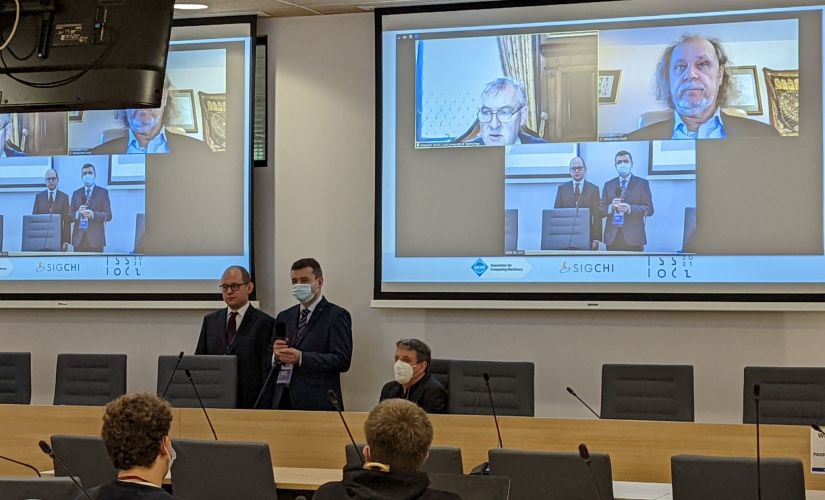Lodz University of Technology hosted one of the most important scientific events in the field of design and engineering of interactive systems, digital devices and spatial processing. On 14-17 November 2021 Lodz hosted, for the first time, the international conference ACM Interactive Surfaces and Spaces (ACM ISS 2021) organized annually by the world's largest IT association - Association for Computing Machinery (ACM).
The pandemic presented the organisers with a new challenge - ensuring full participation and opportunities for interaction between all participants. This was possible thanks to the hybrid format of the conference, which brought together 30 on-site participants and over 50 online participants. The conference was remotely attended by participants not only from Europe, but also from Asia, Australia and North America, so it was necessary to adjust the time of the sessions to different time zones. As one of the two presidents of the conference, Dr Paweł Woźniak, associated with Chalmers University of Technology and TUL, pointed out
- The conference has shown that hybridity in scientific communication is not only possible, but also increases its accessibility.
The conference was opened with a lecture by Prof. Włodzisław Duch - a world-renowned specialist in neuroinformatics, neurocognitive technologies, artificial intelligence and machine learning. The professor explained the technical aspects of reading information while the brain is working, using EEG, called brain "fingerprint" analysis. He also showed how neurocognitive technologies will enable human/brain-computer interaction and change the very nature of humans, their social interactions and coupling with the physical environment. Other presentations examined the latest visualisation and communication interfaces, interactive shape-shifting doors or gesture control in augmented and virtual reality modes. Participants were able to see solutions for increasing spatial awareness and collaboration with users of other technologies. The conference closed with a lecture by Prof. Kaisa Väänänen on human-centred artificial intelligence and how the development of artificial intelligence can be integrated with sustainable development goals.
The conference was significant for the Lodz HCI community. As admitted by the chairman of the conference, Prof. Andrzej Romanowski - Vice-Rector for Education
- the ISS conference was another stage in the development of the scientific community centred around the issues of human-computer interaction, following the launch of a Master's degree in Human-Computer Interaction (HCI) at Lodz.
Opening session of the conference. Conference chairman in the Alchemium room and remotely the Rector Prof. Krzysztof Jóźwik and Prof. Włodzisław Duch.

